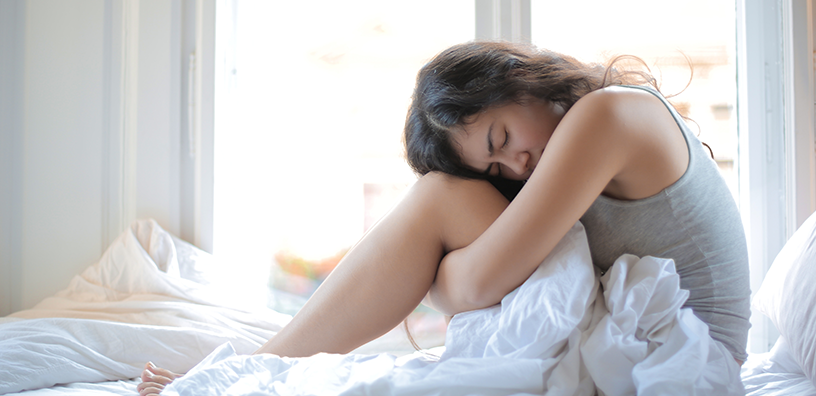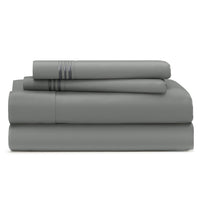
How to Fight Insomnia
Insomnia is not as rare as you might think. In fact, 1 in every 4 Americans experience some form of insomnia during their lifetime.* As frustrating as it can be to struggle with insomnia, you don’t have to sit idly by. We’ve compiled a list of the top tips to help you fight insomnia and reclaim your sleep!
What is insomnia?

Insomnia is the term for a person’s inability to fall or stay asleep. Those who experience insomnia find that their sleep does not leave them rested the way others may experience sleep. A general lack of sleep has been proven to cause incredible harm to the body as it tries to function. Specific symptoms of insomnia include lack of energy and motivation, difficulty concentrating on tasks, drastic mood changes, increased food cravings, decreased job performance, and decreased motor skills.*
Why does it happen?
To understand the cause of insomnia, you first must understand the different types of insomnia.
Acute Insomnia
Acute insomnia is the most common and most treatable type of insomnia. In fact, it typically doesn’t require much, if any treatment at all. Acute insomnia usually occurs in conjunction with stressful life events. If you’ve ever received bad news and had a difficult time falling or staying asleep, chances are you’ve experienced acute insomnia. Since this type of insomnia is connected to events outside of your body, it often resolves itself when the trigger is resolved.
Chronic Insomnia
Chronic insomnia is a much more serious form of insomnia. To be diagnosed with chronic insomnia, you must experience disrupted sleep that lasts three nights a week for a total of three months. Though the start of chronic insomnia may be a life event, your sleep environment, work, school, mental health problems, or medications can all contribute to its development. Once diagnosed, treatments—including behavioral, psychological, and medical techniques—can be prescribed.
How can I fix it?
No matter what kind of insomnia you’re experiencing, there are steps you can take to increase your chance of getting a restful night’s sleep.
Eliminate stimulants

The first step in getting a good night’s sleep is to eliminate stimulants. What do we mean by stimulants? Stimulants are anything that disrupts your body’s natural sleep rhythms. Common stimulants include caffeine, energy drinks, alcohol, and cigarettes. Products like this too close to bedtime can interfere with your brain’s production of melatonin, or as we call it, the “sleepytime hormone.” Loss in the production of melatonin can make it extremely difficult to fall asleep.
Exercise regularly
Regular exercise is not only important for your overall health, but it can contribute to your ability to fight insomnia. Exercise reduces stress and anxiety and increases the amount of time you spend in the deep sleep stage.* This makes sense considering deep sleep is when your body recovers. Exercise can be a long term solution for conquering insomnia symptoms.
Reduce stress

Whether acute or chronic, stress often marks the start of insomnia. Reducing stress is a great step in helping to alleviate symptoms of insomnia. Practicing meditation is a great way to significantly reduce stress.* Start by picking a spot, getting comfortable, closing your eyes, and focusing on breathing for a few minutes every day. With practice, you will feel increased relaxation and motivation. Picking a new hobby is also a proven way to relieve stress. Find someone to do in your spare time that is both stimulating and enjoyable. Finally, one of the simplest stress-relieving methods is taking time to visit with family or friends. Whether it be in person, on the phone, or over FaceTime, spending time with family and friends is a great way to boost your mood.
Don't eat before bed
Eating before bed can negatively impact your sleep. When you eat late at night and lay down to sleep, digestion becomes difficult. Bloating and gas can make it hard to get comfortable, disrupting sleep. Limit meals to no later than 3 hours before bed in order to give your body time to properly digest.
Limit electronics and activities

Electronics are the biggest culprits when it comes to lost sleep. This is due to the blue light emitted from phones, tablets, televisions, and more. By dousing your eyes with this light, you interfere with your body’s melatonin production, making it difficult to fall asleep. Though you may think your television is a “relaxing” way to fall asleep, we can guarantee that you’ll have a much deeper, more restful sleep if you turn it off.*
Make your sleeping environment comfortable
It’s important to make sure your environment is made for sleeping. There are a few things you can do to achieve an ideal sleep environment. First, make sure your room is cool. Scientists recommend a temperature of 60-67 degrees Fahrenheit. As you fall drifts into sleep, your core body temperature drops. By dropping the temperature of the air around you, you speed up your body’s cooling process and fall asleep faster. Second, it’s important to keep in mind that scents are everything.* Diffusing your favorite essential oil or lighting a candle may be the simple trick you need to get you into the sleeping mood. Finally, be picky about your bedroom lighting. Bright white light can be harsh on the eyes and keep you awake. Opt for a dimmer, more warm-toned light during the evening.
Get bedding tailored to your needs
Not only is your environment important to your sleep, but so is your bedding. There are three factors to keep in mind when choosing bedding: Is it cool? Is it clean? And will irritate your skin or nose? Luckily for you, bamboo viscose holds the answer to all three questions.

Bamboo viscose bedding has long been touted as one of the coolest fabrics on the market. In fact, it’s been proven to be cooler than cotton. How does bamboo viscose stay cool? While you’re sleeping, it allows air to pass through the sheets to your body more easily. It also wicks away moisture, leaving you cool and dry throughout the night. No more night sweats!
How clean is bamboo viscose? Bamboo viscose has natural properties that repel dust, dead skin, and more. What does this mean for you? By investing in bamboo viscose bedding, you’ll be spending less time washing and more time enjoying your fresh sheets.
Bamboo viscose is great for cooling and sleeping clean, but what about other irritants? You’re in luck! Bamboo viscose is naturally hypoallergenic. Unlike other materials, it won’t cause you to sneeze and cough when you sleep.
Overall, bamboo viscose is our number one choice when it comes to sheets. They’ve proven time and time again to provide sleepers with the best sleep of their lives. Check out the Cosy House Bed Sheets here!
It’s important to keep in mind that no matter how challenging your insomnia may seem, there is always hope for recovery. In fact, 75% of those who develop insomnia recover and experience deep, restful sleep for years to come.* By utilizing our tips, you too can enjoy sleep and avoid insomnia!
We've gone ahead & enclosed a 10% off coupon below for you to use if you'd like to take the plunge and try out our sheets for yourself! To shop our collection & get 10% OFF Use the code 'BLOG10' at checkout.
Resources:
- University of Pennsylvania School of Medicine. "One in four Americans develop insomnia each year: 75 percent of those with insomnia recover." ScienceDaily. ScienceDaily, 5 June 2018. <www.sciencedaily.com/releases/2018/06/180605154114.htm>.
-
U.S. Department of Health and Human Services. (n.d.). Sleep deprivation and deficiency - how sleep affects your health. National Heart Lung and Blood Institute. Retrieved April 19, 2022, from https://www.nhlbi.nih.gov/health/sleep-deprivation/health-effects
- Youngstedt S. D. (2005). Effects of exercise on sleep. Clinics in sports medicine, 24(2), 355–xi. https://doi.org/10.1016/j.csm.2004.12.003
-
Nowell, P. D., & Buysse, D. J. (2001). Treatment of insomnia in patients with mood disorders. Depression and anxiety, 14(1), 7–18. https://doi.org/10.1002/da.1042
-
Figueiro, M. G., Wood, B., Plitnick, B., & Rea, M. S. (2011). The impact of light from computer monitors on melatonin levels in college students. Neuro endocrinology letters, 32(2), 158–163.
-
Team, F. H. (2021, December 20). The best temperature for sleep. Cleveland Clinic. Retrieved April 19, 2022, from https://health.clevelandclinic.org/what-is-the-ideal-sleeping-temperature-for-my-bedroom/
-
Pacheco, D., & Wright, H. (2022, March 11). The best temperature for sleep: Advice & tips. Sleep Foundation. Retrieved April 19, 2022, from https://www.sleepfoundation.org/bedroom-environment/best-temperature-for-sleep
-
University of Pennsylvania School of Medicine. (2018, June 5). One in four Americans develop insomnia each year: 75 percent of those with insomnia recover. ScienceDaily. Retrieved April 19, 2022 from www.sciencedaily.com/releases/2018/06/180605154114.htm

